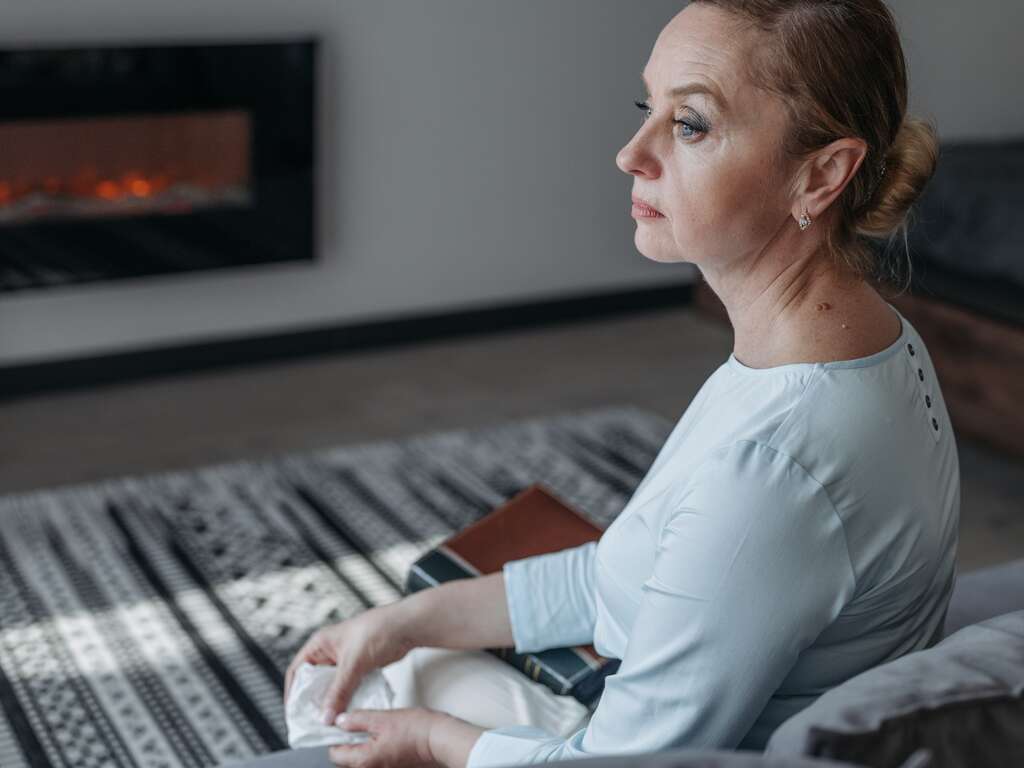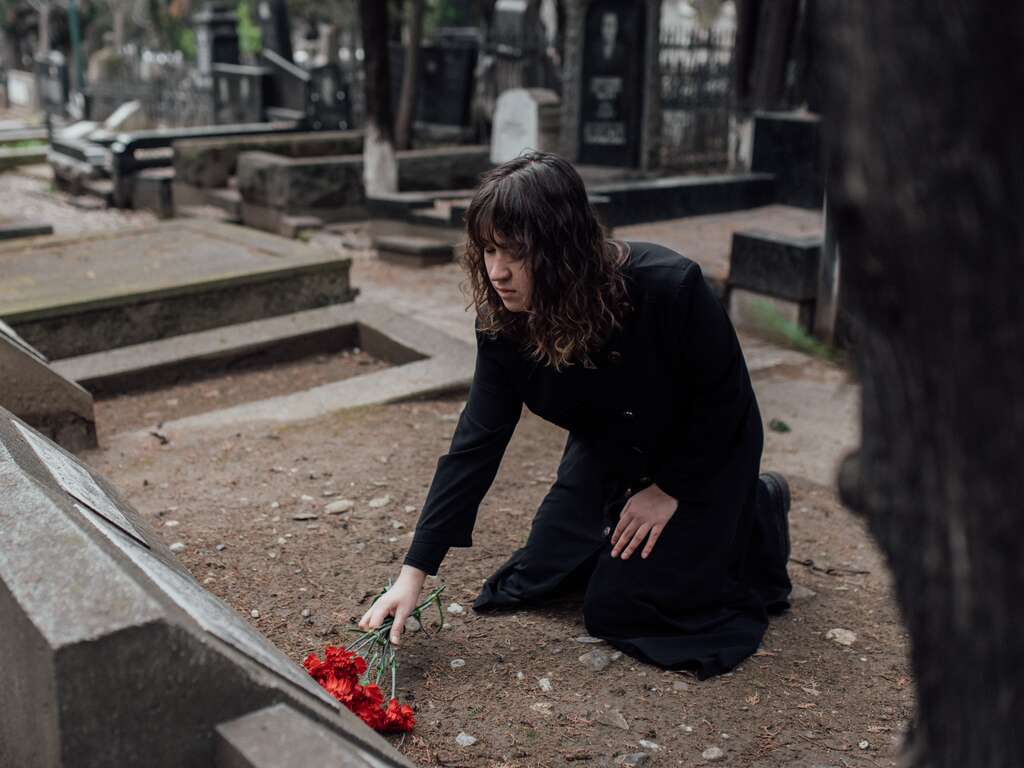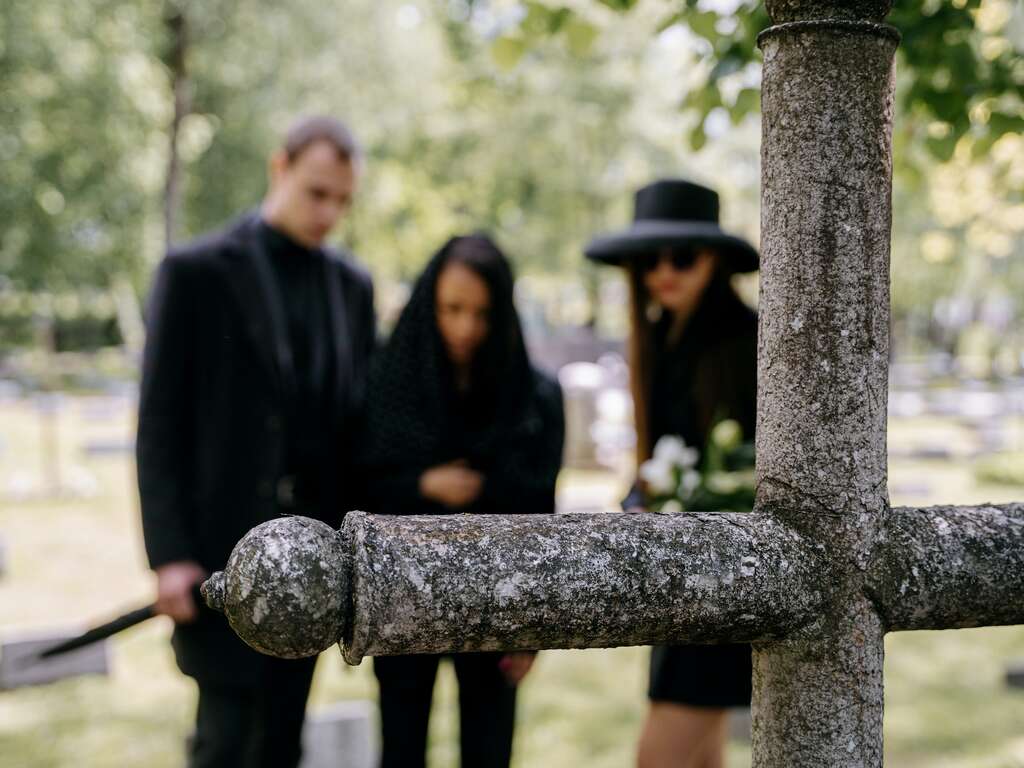Have you ever lost somebody near you to a death or fatality? All family members and friends will experience a person’s death differently.
Grief is a natural response when when close friends or a loved one passes. There is no right or wrong way to experience grief. Coping with grief leads most to stay connected. Some seek spiritual support and guidance from spiritual leaders while others attend support groups or grief counseling.
This article is to discuss the grieving person and the normal response one might feel from a major loss.
What is Grief?

The dictionary defines grief as “deep sorrow, especially that caused by someone’s death.”
There is also anticipatory grief. Anticipatory grief is derived from many factors. Intense emotions are at play because you know the death is inevitable and this effects one’s daily life. Terminal illness, an aging parent or aging pet are an anticipated major loss. Experiencing grief in these scenarios are an inevitable part of your loved one’s life coming to en end.
Prolonged Illness
Prolonged illness for the patient as well as the family effects the mental health of all who anticipates death. The loss, grief and range of emotions supporting a loved one who is facing death is powerful, painful and stressful. The anticipated death of a loved one is a double whammy as you are seeking support to keep them comfortable knowing the loss of a loved and cherish family member will be felt during the process and again with friends and family once your loved one gone.
What are the 5 different stages of grief?
There are 5 stages of grief laid out by Elizabeth Kublar-Ross.
Elizabeth Kublar-Ross who is infamous for her discoveries on death and dying discusses the 5 stages of the grief experience as:
- Denial and isolation
- Anger
- Bargaining
- Depression
- Acceptance
For people who are facing death, as well as friends and loved ones left behind the feelings of grief will be through stages. to move through many stages of grief.
The Grieving Process
The grieving process can last for several months up to several. The 5 stages of grief do not necessarily fall in order. As life continues after a loved one passes the emotions that accompany grief vary. Most will move in and out of the 5 stages at different times.
Bereavement Support Group
Seeking professional help and addressing the loss of a loved one can be uncomfortable. However, for those facing their ultimate passing and the loved one that will be here after the death it is suggested to spend time with compassionate friends and to take care of your mental health. A support group for bereavement is a great place to get a sense of what to expect when someone you love dies.
Complicated Grief
Complicated grief keeps you from resuming your daily life and relationships. Complicated grief usually arises from the death of a loved one.
Physical symptoms such as headaches, nausea, insomnia, restlessness, exhaustion, and loss of appetite are often exhibited after a significant loss.
The pain from significant loss may never completely disappear. Over time and meeting with friends and loved ones to talk, play games, and visit – one hopes the pain of lost loved ones will ease.
Substance Abuse
Face the loss of a loved one can bring unexpected responses. Difficulty concentrating and lack of sleep often weigh heavy on one’s mental health.
Drugs and alcohol are often sought with the hopes of stopping the pain of grieving. Feelings, thoughts, and behaviors are challenged and unfortunately for some, an increase from recreational use to substance abuse, which can lead to addiction and/or alcoholism.
Religious Organizations
Many who are grieving may turn to family, friends, and religious organizations. The important thing is to feel grief not numb it or pretend it does not exist. Talk to clergy and friends and family and commit to having a regular connection.
With a sudden death a grief counselor or pastor can offer immediate help.
Loss Not from Death
Changing jobs or moving cannot be compared to the loss of a loved one. However, the grieving process is similar. Changing jobs, moving away from a place where you have ties, even losing a treasured item like a ring can cause pain, loss and grief.
Sadness and Anger
Sadness and anger from loss or death can have manifestations of physical symptoms similar to grief. It is wise to carefully monitor them.
Anger is a common and normal response to loss. Something we love and care about has been taken away and can create a sense of powerlessness and rage.
We may be angry and feel life is unfair. Some are angry at the person who died for leaving us alone and sad.
Sadness and anger are normal and an understandable reaction to loss. We want to draw friends to us to spend time with them as we try to heal. Isolation from others at the very time we need their support is unwise.
The grieving process is tricky and in experiencing grief it is helpful to recognize and acknowledge our true thoughts and feelings. Dealing with our range of emotions in constructive ways is helpful.
Feeling Guilty
The “if only’s” have a way of haunting us.
- If only I said I loved him before he left
- If only I said “No” you can’t attend special events
- If only I – fill in the blank…
To feel guilty and think we were misguided and we are being punished for something we could have done different is self torture. The grief experience is different for everyone and feeling guilt only harms ourselves.
Guilt Over Our Grief and Loss
We may feel guilty over our grief or loss. Some may feel that do not even deserve feel bad. The loss they are feeling over a person’s death or other major loss may cause internal conflict. The circumstance could involve varied situations. Understand the grieving process has no rhyme or reason and if you feel grief – just allow. Not addressing it can do more harm than good.
Relief for Loss or Death

Imagine feeling relief from the daily tasks involved in helping someone pass with grace and dignity. Or the person who was dying had lost all hope and your days were filled with helping them address their depression inevitable death.
Death can free us from other concerns or fears. Feelings of relief are a natural response. Major loss is full of physical symptoms and feelings.
Unique and Complicated Loss
Each loss is as unique as the individual relationship we had with the person who died. First, the relationships themselves are different. The loss of a spouse is different from the loss of a friend, child, parent, or sibling – not necessarily easier or harder to resolve – just different.
Every relationship is unique and distinctly mourned. The way people die is different, and that, too, affects our grieving.
Sudden deaths and long term illnesses can create problems for resolving grief.
Suicide or Homicide
Grieving a suicide or homicide is different from a normal death, however, the grieving process will still take place.
Feelings can be hard to process and there is no right or wrong way to handle this. Grief counseling is important and there are specialists who understand this type of bereavement.
Sometimes the circumstances as well as the cause can create special issues for survivors.
Holidays, Special Days, and the Anniversary of the Death
Often holidays, special days, and the anniversary of the death are the low times. Holidays and special days such as birthdays are days heavily invested with memories. It is natural that the pain of loss would be keen. The anniversary of the death can be a very sad day.
The Grieving Process
When the grieving process begins often you will certainly familiarize something not feeling right. You may think, “I should be over this by now” or “I don’t like sensation in this manner.”
When you, on your own, acknowledge that it is time to move beyond where you are at you are moving forward in the grieving process.
When a person we love passes away, we have to grieve. When we grieve it is our way of keeping the person alive in our hearts and memory. Understanding they are not a part of this world we continue to think about them and treasure what we choose to celebrate.
Family Members and Grief
Individual members of a family will grieve in different ways. It is wise not to compare their reactions to others in their family.
Each member of a family has their own special and personal relationship to loss and the deceased. The circumstances, the relationship with the deceased is all experienced differently by each member of the family.
Allow Yourself to Experience Grief and Loss
There are all type of innovative methods to keep a person’s visibility in your mind and heart. There is no upside-down. Whatever brings comfort to the bereaved should be sustained by those around them. Bear in mind that just because a person is selecting something that may be incorrect or horrible to you, does not make it incorrect for that individual.
When acceptance occurs a mourning individual can begin to re-assimilate back right into their life as well as the lives of those around them. We all need perseverance, caring and understanding for those returning from grief.
Mourning Alone
A person may be very private and won’t do his/her mourning where others can see. The individual might be trying to be solid for every person in their circle of family and friends.
They may have children and want them to understand they are okay. They do not want someone else to see them grieving believing they will handle their grief after others are better.
Helping Those Mourning
If you are involved in the life of a person that is mourning, please don’t judge yourself or them.
Comprehend that all actions are not always purposeful and they may not be completely present for what they are doing. Being mindful and making mindful choices usually come and go during the complicate grief.
It Takes Time to Resolve Grief
It does take time to resolve grief. Popular misconception of grief is that people can move on from their losses quickly. The reality is grief takes time and each person’s timeline is based on their process.
Those who have studied grief have concluded it can take multiple years to get recover from loss. A roller coaster analogy with highs and lows can assist us in understanding that it is a normal part of the grief experience to have high and low after loss. Hopefully, they will be less intense and shorter as time goes by.
Eternally Loved Helps Celebrate Your Loved One
Eternally love is dedicated to making the process of celebrating your loved ones life easy. We plan special events to honor the life lost. Please do not hesitate to call us to help you through this time.



